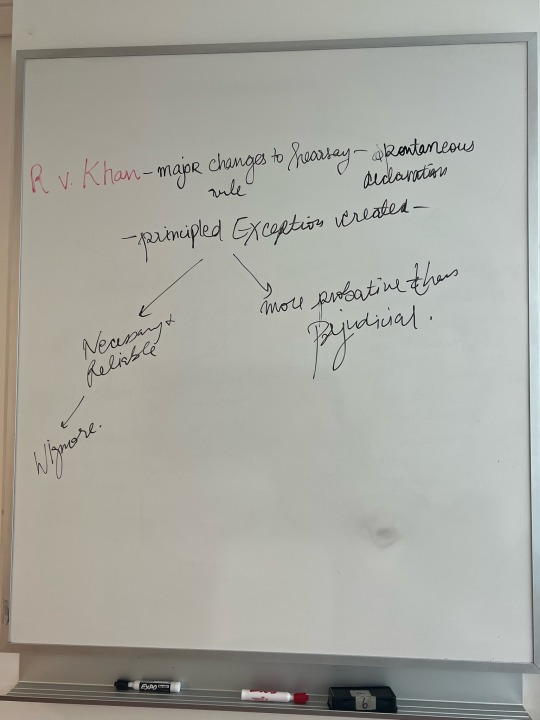#indian lawyer
Text
Why Divorce Can Be a New Beginning to Happiness
Divorce Lawyer in Greater Noida can redefine their relationship if there is still any relationship between them. After a breakup, partners can become friends or spouses, which can still be beneficial for both parties. By redefining their relationship, they can still support each other and stay connected while respecting each other's boundaries.

2 notes
·
View notes
Text
instagram
Get advice from the lawyer and know your legal rights from the lawyers on the CallMe4 app.
#indian lawyer#lawyer advice#law advice#legal advice#lawyer#phone consultation#callme4#callme4app#Instagram
1 note
·
View note
Text
Basics of the Income Tax Act
Taxes are government-imposed financial charges levied on earnings, commodities, services, activities, or transactions. Here are the basics that you should know about the Income Tax Act.
The word "tax" is derived from the Latin word "taxo." Taxation is the government's primary source of revenue, and it is used to benefit citizens through government policies, regulations, and practices.
The Indian tax system has evolved to meet the government's increasing financial needs. The system is also intended to assist the government in meeting its socioeconomic objectives.
Tax reform is an ongoing process that should be carried out regularly to assess the system for revamping and repairs. The Income Tax Act come into force from 1961.

What is income tax?
Tax is a mandatory financial charge imposed by the government on wages, goods, administrations, exercises, or exchanges. Taxes are the primary sources of revenue for the government, and they are used to benefit the country's general population through government strategies, arrangements, and practices.
Taxes are mentioned in ancient texts such as Manusmurti and the Kautilya Arthashastra. It was first implemented in India in 1860 to combat the 1857 financial crisis. As a result, the income tax act come into force from 1961.
Need for income tax in India
Income tax is a tax on an individual's or entity's earnings. The primary source of revenue for the government to carry out its functions is income tax. Government jobs include defence, law and order, and welfare and development in health, education, rural development, etc.
The government must also pay for its administration. These activities necessitate substantial public funds, which are raised through taxation.
Purpose of taxation
The revenue generated by tax collection is used to fund the development of roads, schools, and hospitals, market regulations, and legal systems, among other things.
Redistribution of resources from the richer to the poorer sections of society
Certain products are taxed to eliminate externalities, such as tobacco taxes to discourage smoking.
Assessment year and previous year as per the Act
According to Section 2(9) of the Income Tax Act of 1961, an assessment year is 12 months beginning on April 1 of each year.
The assessee must file the previous year's income tax return in the assessment year in the assessment year. According to Section 2(34) of the Income Tax Act of 1961, unless the context requires otherwise, the term "previous year" refers to the previous year as defined in Section 3.
According to Section 3 of the Act of 1961, the term "previous year" refers to the fiscal year immediately preceding the assessment year.
For example, if the assessment year 2018-19 begins on April 1, 2018, and ends on March 31, 2019, the previous year would be 2017-18.
Who is a person as per the Act?
Section 2(31) of the Act defines a person. The term 'person' encompasses –
An individual.
A Hindu Undivided Family.
A Company.
A Firm.
Persons or body of individuals’ association, whether incorporated or not;
A local authority
Assessee definition in income tax
An assessee definition in Income Tax is any individual who has earned income or incurred losses and must pay taxes on these to the government in a given assessment year.
Normal assessee
Assessee classifications
A person who is the subject of proceedings under the Income Tax Act, whether or not he owes any tax or other amount;
A person who has suffered loss and has filed a loss return under section 139(3);
A person who must pay an amount of interest, tax, or penalty under the Income Tax Act;
Any person who is entitled to a tax refund under this Act
Assessee representative
A person may not be liable for his income or loss, but he may be responsible for the income or loss of others, such as the agent of a non-resident, the guardian of a minor or a lunatic, etc.
Deemed assessee
In the case of a deceased person who died after making a will, the administrators of the deceased's property are considered assessees.
If a person dies intestate (without leaving a will), the deceased person's eldest son or other legal heirs are considered assessees.
If a minor, lunatic, or idiot has taxable income under the Income Tax Act, their guardian is considered an assessee.
If a non-resident has income in India, anyone acting on his behalf is considered an assessee.
Assessee-in-default
If a person fails to fulfil his statutory obligations, he is considered an assessee-in-default. If an employer pays a salary or a person pays interest, it is their responsibility to deduct TDS and deposit the amount of tax collected in the government treasury.
To conclude:
As discussed, tax is a mandatory charge levied by the government on a person. Income Tax Act provides several provisions for taxpayers based on their needs. The government has provided various forms to pay income tax, depending on whether a person is an individual, HUF, a company, an ordinary resident, a non-ordinary resident, or a non-resident person.
0 notes
Text

Jordan Sangha
Gender: Male
Sexuality: Bisexual
DOB: 11 October 1997
Ethnicity: White, Indian
Nationality: British
Occupation: Reality star, lawyer
Note: Won Big Brother UK 2023
#Jordan Sangha#bisexuality#lgbt#lgbtq#mlm#male#bisexual#1997#white#indian#biracial#asian#british#lawyer#reality star#big brother
65 notes
·
View notes
Text
Some excerpts from Adv. Vrinda Grover's statement at the Supreme Court of India, as a part of the 15 petitions that were heard for the marriage equality bill. She presented arguments for the concept of a chosen family which was a more progressive stance on how families/unions could be defined by the constitution and it goes beyond just same-sex marriage. It could cover polyamory and recognition of queerplatonic intimacies between 2 or more individuals, and much more:
“During COVID, a study that was done on trans persons found that when trans persons due to lockdown and the nature of the disease, had to return to their natal families and their homes. Over there they faced violence. They faced conversion therapy which is prohibited. And that was actually an illustration of what would happen if other social formations of care and support did not exist. This is what has been described as an atypical family. This form of chosen family is recognized in our law; for instance, adoption.
Adoption is a form of chosen family. Today we recognize families and we conceptualize family as by blood, marriage or adoption."
"There is increasing legislative and judicial recognition of a person who may not necessarily be conjoined through marriage or conjugal intimacies. In relation to the advanced directive, every person who is not a minor shall have a right to make an advanced directive in writing specifying any of the following individual or individuals in order of precedents he wants to appoint as his nominated representatives.
"..Ensure that laws and policies recognize the diversity of family forms, including those not defined by descent or marriage and take all necessary legislative, administrative and other measures to ensure that no family may be subjected to discrimination on the basis of sexual orientation or gender identity of any of its members, including with regard to family related social welfare and other public benefits, etc. "
"I would say that what we are canvassing before this court is a different imagination. A new imagination of marriage and relationships and of family. An imagination which actually places at the foundation, love, care, and respect which may or may not come from the natal family because of my sexual orientation and gender identity.”
"There can be a feminist jurisprudence and feminist critique of family and that family can perpetuate caste purity and patriarchal control; so there may be persons who are of different sexual orientations and gender identities, which because of the hostility of natal families actually form intimacies that are non-marital, non-procreative, which are intimacies that are the only social conclave and support they can find."
Her statements were pleasantly surprising. Most of the earlier petitions chose to only focus on gay marriage and trans people having the right to marry, and I didn't expect any of the (star)lawyers/petitioners to go beyond that. But this. This is a sign of liberation. It reminds me a lot of the family code that granted marriage equality in Cuba. I love that we have some very progressive minds fighting this case.
#marriage equality#india#this better go well#lgbt#indian lgbt history#she was such a queen for this#a lot of the earlier petitioners werent intersectional enough#they were making points that painted same-sex marriage the cure all for most issues lgbt#someone said that “our families already accept us. now its just the courts that are left”#sir- no-#a lot of them came from upper caste hindu lgbt lawyers who have families that accept them so it's unsurprising#and so having vrinda and raju ramchandran speak after the govt tried to paint this as an issue of the elites was GOLDEN#SC better come up w the sexiest ruling in indian queer history or ELSE-#also w our temple art and kama sutra can yOu bEliEvE we have to fight for this#lgbtq
24 notes
·
View notes
Text
"It is unwise to be too sure of one's own wisdom."
Mahatma Gandhi - (1869-1948) - Indian Lawyer
#quoteoftheday#quotes#quotesoftheday#quotes of tumblr#life quotes#inspirational#life quote#mahatma gandhi#indian#lawyer#lawyers#daily quotes#criminal minds#criminal minds fan#luke alvez#adam rodriguez#criminal minds season thirteen
4 notes
·
View notes
Text
47 notes
·
View notes
Text
🚀 Excited to share my latest article
4 notes
·
View notes
Text
KJ Charles, absolutely nobody was going around calling Black and brown people "people of colour" in the 1800s. They were called and called themselves "coloured people". It's relevant that the only terminology they had was subtly Othering and coined by whites. Nobody is going to go into vapours if 19th century characters use it. Stop jolting me out of your otherwise very good stories with self-conscious rummage for modern PC terms.
Also for the love of God just say "black" instead of pussy-footing around going "dark skinned". I can't tell who's Indian, Black or Portuguese with this shit. It's a racial and political identity, not a dirty word.
#white people are just#sigh#can y'all be normal for five minutes#afaik both indians and africans used to be called 'black' in the UK#indian ocean slavery was relatively lower key but outlasted atlantic ocean slavery for decades#Ghandi was a lawyer and was forced to ride on the train roof instead of being allowed to share a train car with colonials in his own country#whites didnt give a shit whether or not queen victoria had the offspring of sellout indian royalty as godchildren#all coloured colonized people were savages to them#they barely treated white jews poles and mediterranean europeans as real people let alone asians and africans and aboriginals#racism#british history#historical fiction#queer historical fiction#kj charles#knee of huss
5 notes
·
View notes
Text
Here is a little movie review I did. I loved this movie a lot and tried explaining why in this article. :))
Did we know something like this happened?
A tight slap for those who think Casteism is but a thing of the past, director T. J. Gnanavel brings this issue to the forefront in his movie ‘Jai Bhim’.
I don’t like watching movies. The fault doesn’t lie in them but in me. I am unable to concentrate and sit in the same place for more than 10 minutes if I am not doing something. Nonetheless, the…

View On WordPress
#bhimrao ambedkar#casteism#film#good#lawyer#movie#movie review#review#south indian#tribals#tribe#untouchability
8 notes
·
View notes
Text
Mutual Divorce Lawyer in India
Divorce is an increasingly common phenomenon in India, with couples ending their marriages for various reasons. Divorce process in India is governed by several laws and understanding the intricacies of these laws is essential for a person seeking a divorce.
In India, the primary law governing divorce is the Hindu Marriage Act 1955. This law applies to persons belonging to the Hindu, Buddhist, Jain or Sikh religions. The law provides for certain grounds on which divorce may be sought, such as adultery, separation, mental disorder, contagious and incurable form of leprosy, failure to marry, conversion to another religion, and cruelty. There is also a provision in the law that a court can dissolve a marriage by mutual divorce.

In addition to the Indian Marriage Act, certain persons are also subject to the Indian Divorce Act, 1869 and the Parsi Marriage and Divorce Act, 1936. These statutes define the grounds on which a person can apply for divorce; however, the grounds provided in these laws are more limited than those provided in the Hindu Marriage Act. In addition to the various laws, the person seeking a divorce must be aware of the process. The main steps in the process include filing a petition with a court of competent jurisdiction, providing notice to the other party, and then participating in a hearing and mediation. The court will then decide on the divorce and the parties can begin to negotiate a settlement. Depending on the reasons for the divorce, it can last from six months to several years.
Generally, Indian divorce laws provide a framework for individuals who wish to end their marriage. It is important for a person to know the process and the applicable laws as this can help them make informed decisions.
1 note
·
View note
Text

Yes it's true! Search cm4 id of your favourite lawyer in the CallMe4 app and get instant advice.
#Lawyer#law#legal#advocate#indian advocate#indian lawyer#indian law#legal law#phone consultation app#phone consultation#callme4#callme4 app
1 note
·
View note
Text
Income Tax Act: An Overview
The Income Tax Act of 1961 is a comprehensive statute governing all India's tax regulations. Here's an overview of the act.
The Income Tax Act has several rules for taxing both incomes earned in advance and income concerning amounts that have not yet been received.
In addition to paying your income tax on time, as a taxpayer, you must also keep track of the TDS deducted when calculating your ultimate tax liability at the end of the financial year.
Whether you are paid or self-employed, it is your responsibility as a citizen to pay income tax on time each year. And to help you understand income tax better, we've outlined all you need to know about the Tax Act of 1961 in this article.

What is income tax?
Income Tax is a tax on earnings. According to the Indian Constitution, income tax is a central subject, and the Central Government assesses and collects income tax on all forms of income other than agricultural income.
The Income Tax Act come into force from April 1, 1962, and pertains to India's entirety (including Jammu and Kashmir). Since then, each year's Finance Acts have introduced several substantial revisions to the Act.
What is the income tax act?
In India, the concept of income tax has persisted for many years. In 1860, James Wilson, the first British finance representative, introduced the modern Act of Income Tax. Although numerous tax laws have been enacted since then, the Act of 1961 has withstood the best test of time.
The current act is a comprehensive set of laws that governs the country's different tax regulations. Implemented in 1961, it assures that taxes are levied, collected, handled, and recovered on schedule and correctly for the Indian government each year.
The 1961 Act contains 23 chapters and 298 sections, according to the official website of the Income Tax Department. These several sections address various elements of taxation in the country.
The amount of income tax a person must pay depends on their annual income. The numerous tax categories for which one must pay taxes include:
Salary
House property income.
Capital gains.
Profits from profession or business.
Income gains from other sources.
Every February, the Indian government announces revisions to the Act of 1961 to make it relevant to the current day and incorporates modifications to tax brackets wherever applicable.
After the revisions to the act, the Indian President approved them and announced them to the general public within the same fiscal year.
Objectives of the act
As with every other Act, the Act was enacted to achieve specific goals. The objectives of the Act are as follows:
Economic Development
The nation's economic growth or development is one of the Act's primary goals. A nation's economic growth or economic development is directly related to its rate of capital formation growth.
To alleviate the capital shortage, the government enacted the Act in 1961, which mobilised the nation's resources to facilitate the rapid accumulation of capital. Implementing new taxes or increasing existing taxes aids the smooth formation of money.
Full Employment
Employment is the second goal of the Act. The demand for competent experts and the availability of well-paying jobs determine the nation's employment rate. And the tax rates must be reduced to reach the goal of full employment. In exchange, the need for products and services will increase, resulting in capital formation in the economy due to the multiplier effect on employment and income.
Stability of Cost
The significance of steady prices is significant. Despite being a short-term objective of taxes, ensuring price stability became more accessible with the introduction of the Income Tax Act of 1961
Under this Act, the government may easily regulate price inflation. With the increase in direct taxation, private expenditure has been restrained, and consequently, the pressure on the commodity market is eased.
However, decreasing prices during deflation may have the opposite effect on the market and economic growth.
Management of Cyclical Fluctuations
Controlling cyclical economic volatility is another aim of this legislation. During a country's economic depression, taxes are reduced and are increased to break cyclical oscillations in monetary value during an economic expansion.
Reduction of the Difficulties of the BOP
The Act also imposes taxes such as customs tariffs to regulate the import of specific commodities. It is also done to lessen the intensity of payment problems and encourage the home manufacturing of import alternatives.
Non-Profit Objective
The non-revenue goal of the Act increases wealth and income disparities among residents. It is accomplished by taxing the wealthy at a higher rate than the poor and instituting a progressive taxation system.
To Conclude:
The income tax act come into force from the 1st day of April in 1962. The Income Tax Act aims to encourage economic progress, create a society with full employment, limit economic volatility, establish price stability, and regulate tax differentiation. The primary purpose is to reform and consolidate the country's tax laws.
0 notes
Photo

El-Farouk Khaki
Gender: Male
Sexuality: Gay
DOB: 26 October 1963
Ethnicity: Indian
Nationality: Tanzanian / Canadian
Occupation: Lawyer, activist
Note: Founded Salaam, the first gay Muslim group in Canada and second in the world
#El Farouk Khaki#qpoc#homosexuality#lgbt#lgbtq#male#gay#1963#indian#asian#poc#Tanzanian#canadian#lawyer#activist#muslim#first
88 notes
·
View notes
Note
are y'all keeping up with the same-sex marriage hearing going on rn?
I am. Mod Og suffers heart attacks whenever I send an update :)
-Mod Raissa
#I think I have the video of the lawyer who gave the speech saved#Leeme see if I can post it#Asks#Indian queer marriage#Court hearing#Mod raissa
7 notes
·
View notes
Text
I do not possess the art of writing on boards.

Last exam!!!
#studyblr#indian lawblr#lawblr#indian studyblr#law student#studyspo#dark academia#study motivation#evidence law#hearsay#r v khan#law exams#asian lawblr#lawyer#paralegal
11 notes
·
View notes